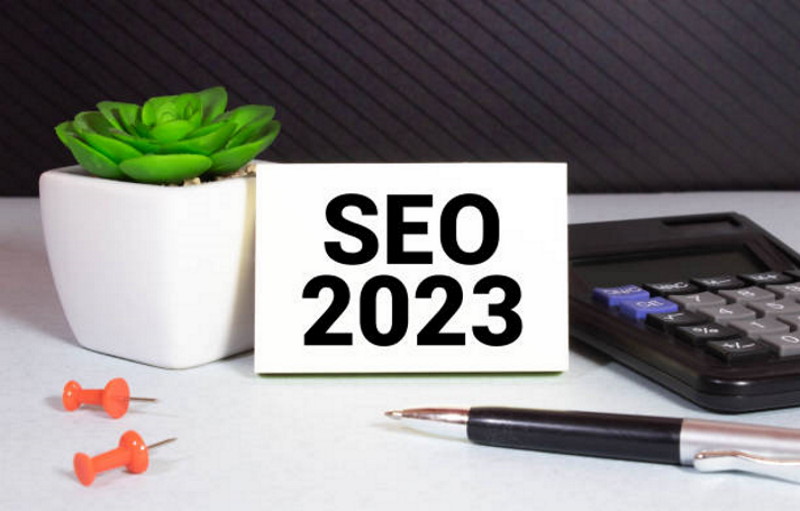Coming up with a cohesive SEO strategy in the era of ChatGPT and AI is daunting. Do businesses even need to optimize anymore if everything is being scrutinized and dominated by artificial intelligence? How do SEOs and businesses keep up with the blinding pace of change in the digital search landscape?
Google engineers have always been traditionally mum about these significant changes. It’s not in their interest to share industry secrets or even the broad strokes of how their algorithm changes work. Sure, they can publish white papers and blogs once in a while, but there’s still a lot we don’t know. Therefore, we must work with what we know and future-proof our strategies for SEO. Below are some areas worth looking into to future-proof your SEO in 2023 and beyond.
Please don’t Shy Away from AI, But Use It Well
Google doesn’t hate AI, but they do seem to think that content created purely by AI is low quality or spam. And it’s true: the current state of AI doesn’t allow any language-learning database to speak as humans do.
Therefore, AI is still learning, and publishers cannot entirely depend on AI to do all the work. SEOs have reported on social media that they were struck by algorithm changes late last year.
Some have even begun selling their web properties because of the severe impact. However, shared across all these web properties was that they never took the time to write good content.
They relied on AI programs to write all the content for them and trusted the optimization process too much. In the end, their content was low quality, and Google had every right to de-rank these pages because they were taking up quality real estate for no good reason.
Again, this doesn’t mean you should veer away from SEO tools and artificial intelligence that help create optimized content. The main point is to continue creating content the traditional way. Create content that people love; that’s the best type of content. The optimization process after the writing will always be secondary to writing great content.
Is Google Ending the Era of Backlinks?
This month, Google has given statements hinting that backlinks will no longer have the same weight as before. While this statement makes many SEO vendors panic, let me remind everyone that this isn’t new.
Google periodically revamps its algorithm to ignore certain links so they would have zero net effect on the ecosystem. Unfortunately, the learning process for the AI takes months and sometimes even years, so you will see an uneven development across searches when new algorithms are rolled out. And the company doesn’t announce every update, either.
Does this mean that backlinks are dead? Not. However, people never stopped trying to rank better with link schemes, which are undoubtedly wrong in Google’s opinion. I guess the big lesson here is if you’re trying to get more backlinks on the cheap without exerting any effort to serve your customers or audience, then don’t expect the needle to move.
Google makes it difficult for businesses to rank if they don’t want to publish good content and make no effort to reach their customers. That’s why Google never uses social media as a direct factor in ranking pages because they’ll always be focused on what you offer on your website.
However, earning backlinks because you’re doing a good job means the search engine rewards you. So, we’re back to square one: get quality backlinks because you’ve earned them. That doesn’t sound like a significant change to me, so don’t despair. We still need backlinks, but we need to think hard about where these backlinks are going to come from now.
Make Your Website Practical and Efficient
There’s endless talk about UX/UI improvements and user-friendliness, but it can be tough to figure out what would improve your website. If you haven’t thought about usability at all in the past few months, the following should inspire you:
Get Your Site Up to Speed
Page load times influence visitors who only plan to scan your site. You risk losing customers if you are unable to engage them in conversation.
It’s terrible for search engine optimization, as it’s one of the main factors Google considers when determining search results.
It would help if you made your website faster to keep potential buyers from leaving your website and jumping to the closest competitor. Test on different devices, and don’t rely on just your devices, as your website files have already been cached there. Try the following, too:
- Using as little HTML, CSS, and JavaScript as possible to lessen the load on the server.
- By allowing compression, the size of individual page elements can be reduced.
- Reduce the time to load visual assets.
- Lessening the number of pages reloads.
- Remove all extras and gadgets. Instead, check the site’s functionality with a third party like PageSpeed Insights.
Maintain Current Standards
To tap into the user’s ingrained muscle memory, you must conform to the established standards. The logo in the header is a good place for a user to click back to the homepage. Helps guide wayward tourists back to safety. To begin again, they need only click the button. As a result, you can prioritize the following web design best practices to facilitate user navigation:
– The sidebars you use should be easily distinguishable from the main text. Keep the background from being too white around them.
– Insert text like “About” or “Contact Us” into the button. When guiding visitors around your site, keep the text simple.
– Users should be able to identify the navigation buttons immediately. Although some experimentation is encouraged, it should not be done at the expense of readability.
– CMS platforms provide a plethora of ready-made footers. Perfect for pointing the way for tourists who have gotten off track.
Get Your Site Indexed
Site-goers have clear goals in mind when they visit your website. Therefore, put in place a search fields to facilitate their investigation.
Since Google’s search engine is utilized, Google Custom Search is one of the best free tools. Keyword tag clouds can also be helpful for smaller blogs.
Custom searches are a win-win for both you and your visitors. All those different search terms are like gold, giving us insight into what people are looking for.
Reduce Page Complexity
Website visitors are discouraged by overcrowded sites. We’re talking about many unpleasant experiences, like wading through pop-ups and inefficient widgets. On the other hand, visitors are more likely to trust a site that looks professional.
Reduce the complexity of the layout to its barest minimum. For example, don’t clutter your sidebars with ads and competing calls to action.




